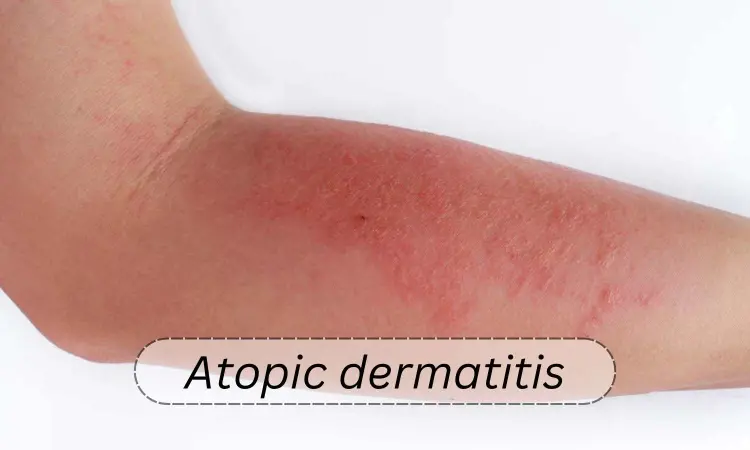- Home
- Medical news & Guidelines
- Anesthesiology
- Cardiology and CTVS
- Critical Care
- Dentistry
- Dermatology
- Diabetes and Endocrinology
- ENT
- Gastroenterology
- Medicine
- Nephrology
- Neurology
- Obstretics-Gynaecology
- Oncology
- Ophthalmology
- Orthopaedics
- Pediatrics-Neonatology
- Psychiatry
- Pulmonology
- Radiology
- Surgery
- Urology
- Laboratory Medicine
- Diet
- Nursing
- Paramedical
- Physiotherapy
- Health news
- Fact Check
- Bone Health Fact Check
- Brain Health Fact Check
- Cancer Related Fact Check
- Child Care Fact Check
- Dental and oral health fact check
- Diabetes and metabolic health fact check
- Diet and Nutrition Fact Check
- Eye and ENT Care Fact Check
- Fitness fact check
- Gut health fact check
- Heart health fact check
- Kidney health fact check
- Medical education fact check
- Men's health fact check
- Respiratory fact check
- Skin and hair care fact check
- Vaccine and Immunization fact check
- Women's health fact check
- AYUSH
- State News
- Andaman and Nicobar Islands
- Andhra Pradesh
- Arunachal Pradesh
- Assam
- Bihar
- Chandigarh
- Chattisgarh
- Dadra and Nagar Haveli
- Daman and Diu
- Delhi
- Goa
- Gujarat
- Haryana
- Himachal Pradesh
- Jammu & Kashmir
- Jharkhand
- Karnataka
- Kerala
- Ladakh
- Lakshadweep
- Madhya Pradesh
- Maharashtra
- Manipur
- Meghalaya
- Mizoram
- Nagaland
- Odisha
- Puducherry
- Punjab
- Rajasthan
- Sikkim
- Tamil Nadu
- Telangana
- Tripura
- Uttar Pradesh
- Uttrakhand
- West Bengal
- Medical Education
- Industry
Adults With Atopic Dermatitis at Increased Risk Of Venous Thromboembolism

A recent study published in JAMA Dermatology has shed light on the potential link between atopic dermatitis (AD) and an elevated risk of developing venous thromboembolism (VTE) in adulthood. AD, a chronic inflammatory skin condition, has been previously associated with various cardiovascular comorbidities due to its systemic inflammatory effects. To investigate this further, a comprehensive population-based cohort study was conducted.
This population-based nationwide cohort study was conducted by Tai-Li Chen and colleagues which aimed to assess the risk of developing venous thromboembolism (VTE) among patients with atopic dermatitis (AD). The study included adults aged 20 years or older who were newly diagnosed with AD between 2003 and 2017, along with matched controls. The data were obtained from the National Health Insurance Research Database. Patients with AD were further categorized based on the severity of the disease. The primary objective was to estimate hazard ratios (HRs) using a Cox regression model to evaluate the association between AD and incident VTE. Stratified analyses based on age and sex, as well as a sensitivity analysis excluding individuals using systemic steroids, were conducted.
The findings of the study were:
● The study analyzed a nationwide cohort of participants, comprising both individuals with AD and matched controls.
● A total of 284,858 participants were included, with an equal number of individuals in the AD cohort and the non-AD cohort.
● During the follow-up period, 0.7% of patients in the AD cohort (1066 individuals) and 0.6% in the non-AD cohort (829 individuals) developed VTE.
● The incidence rates were calculated at 1.05 and 0.82 per 1000 person-years, respectively.
● The results showed that adults with AD had a significantly higher risk of incident VTE compared to those without AD, with a hazard ratio (HR) of 1.28 (95% CI: 1.17-1.40).
● Subsequent analyses revealed that AD was associated with increased risks of deep vein thrombosis (HR: 1.26; 95% CI: 1.14-1.40) and pulmonary embolism (HR: 1.30; 95% CI: 1.08-1.57).
While the absolute risk difference of VTE between adults with and without AD appeared relatively small, the findings emphasize the importance of considering cardiovascular evaluation and necessary management for adults with AD who present symptoms suggestive of VTE.
This comprehensive cohort study provides evidence of an increased risk of developing venous thromboembolism among adults with atopic dermatitis. The findings highlight the importance of considering cardiovascular evaluation and appropriate management for individuals with AD who exhibit symptoms suggestive of VTE. Future research should focus on elucidating the underlying mechanisms linking AD and VTE to enhance our understanding of this association and improve patient care.
Reference:
Chen, T.-L., Huang, W.-T., Loh, C.-H., Huang, H.-K., & Chi, C.-C. (2023). Risk of venous thromboembolism among adults with atopic dermatitis. JAMA Dermatology (Chicago, Ill.). https://doi.org/10.1001/jamadermatol.2023.1300.
Dr Kamal Kant Kohli-MBBS, DTCD- a chest specialist with more than 30 years of practice and a flair for writing clinical articles, Dr Kamal Kant Kohli joined Medical Dialogues as a Chief Editor of Medical News. Besides writing articles, as an editor, he proofreads and verifies all the medical content published on Medical Dialogues including those coming from journals, studies,medical conferences,guidelines etc. Email: drkohli@medicaldialogues.in. Contact no. 011-43720751


